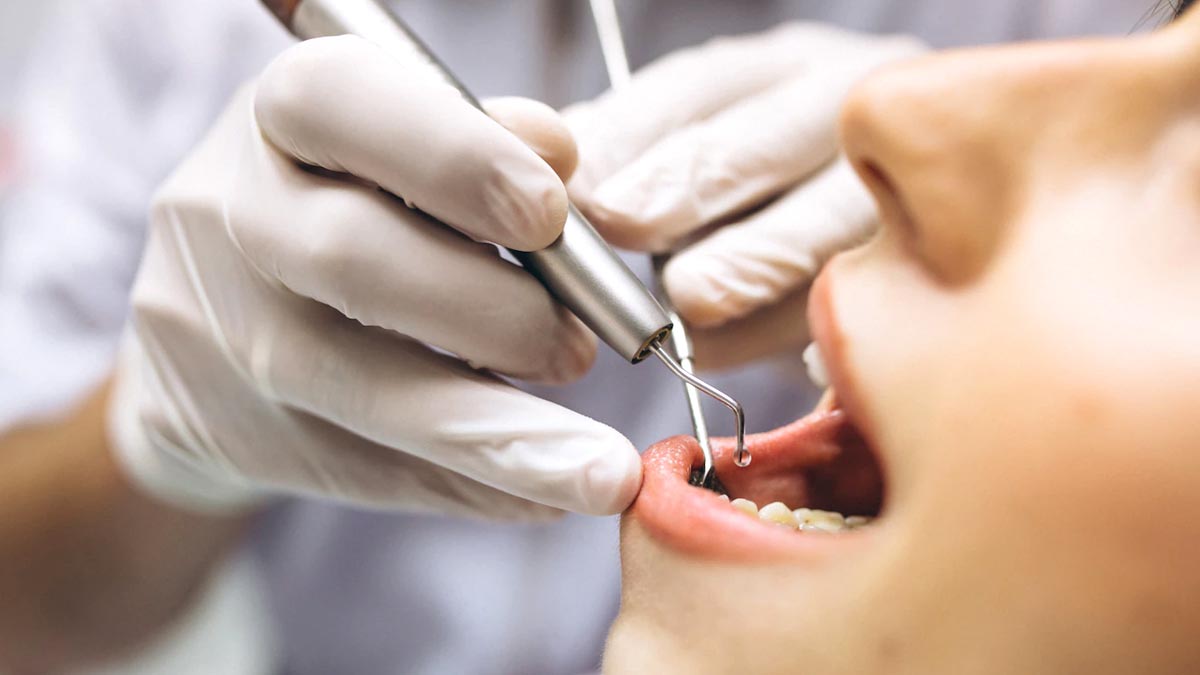
Oral health and hygiene is far more than just healthy teeth. When a person meets you, the first thing they notice is your smile. In other terms, your mouth reflects your general health and well-being. Poor oral hygiene may lead to diseases and ailments such as:
Table of Content:-
- Gum diseases
- Reduces the chances of heart attacks and strokes
- Minimises the risk of diabetes
- Prevents dimentia
Alongside brushing your teeth, it is also important to note that the mouth will never truly be clean unless you brush your tongue too. No matter how much time or for how long you brush your teeth, if you don't clean your tongue then there will always be a higher risk of your teeth problems such as plaque, decaying, yellowing and developing cavities.
Also Read: 10 Myths And Facts On Oral Hygiene

To address the same issue, OnlyMyHealth editorial team got in touch with Dr. Rajesh Shetty, Celebrity Dentist and Smile Design Specialist, Clinical Director and M.D.S, Periodontist and Implantologist from Dazzle Dental Clinic, Bandra Mumbai to elucidate on the tips and way one should clean their teeth. Dr. Shetty explains that people notice a person's smile first. As a result, many people want to ensure that they have a smile that will make others halt in their tracks. There are two ways to clean your teeth. They are as following:
1. Brushing
Brushing one’s teeth helps in preventing tooth decay which in turn can lead to dental cavities. Dental cavities refer to the formation of holes on the teeth. It is also a condition that can result in a tooth or even teeth loss. Brushing also helps in preventing bad breath.
2. Flossing
Dental floss is one of the most effective and easiest ways to use tool that can be among your best defenses for preventing periodontal disease. Periodontal disease is caused by a buildup of plaque and bacteria. Dental experts suggest that daily oral hygiene routine should include a thorough brushing that lasts for about two minutes. It is also said that one may brush his teeth at least twice every. Incorporating floss into your routine is an efficient way of deep cleaning. Flossing is an effective way of cleaning areas where your toothbrush cannot reach.
The following are a few of the most prevalent compounds used in whitening toothpaste:
- Hydrogen peroxide
- Mild abrasives (i.e. silica, dicalcium phosphate, calcium carbonate, sodium metaphosphate, zirconium silicate)
- Activated charcoal
- Baking soda
Also Read: Debunking Dental Health Myths: 7 Things That We Believe But Aren’t True

Oral Hygiene Tips
Keep in mind that these components are typically only effective in removing the top layer of teeth, not the complete tooth.
1. Stop Smoking
Tobacco compounds found in cigars and cigarettes are lodged in the grooves and holes of your tooth enamel. They stain your teeth because they become trapped, making them seem yellow or even brown.
2. Don't consume anything that stains your teeth
If you want to brighten your teeth without spending a fortune at the dentist, one of the easiest methods to do it is to avoid eating foods that naturally stain your teeth. Some of the most common objects that discolour teeth are: Red wine, Coffee and tea, Tomato sauce, Curry, Balsamic Vinegar, Sodas, Fruit juice
3. Eat less food with added sugar
Sugar in meals can combine with microorganisms in your mouth to make acid. The acid created is what causes your teeth to discolour and lose enamel. Avoid consuming a lot of sugary foods, such as junk food. The greatest foods to consume for whiter teeth are crunchy fruits and veggies and dairy products. Of course, eating the appropriate meals does not substitute for cleaning your teeth at least twice a day!
4. Oral hygiene is key
Brushing your teeth twice a day, flossing once a day, scraping your tongue, and seeing the dentist regularly are all fantastic ways to improve your smile.
Good hygiene prevents plaque buildup and gum disease, both of which contribute to plaque buildup and, in extreme cases, tooth loss. Your mouth and smile will appreciate it.
Also watch this video
How we keep this article up to date:
We work with experts and keep a close eye on the latest in health and wellness. Whenever there is a new research or helpful information, we update our articles with accurate and useful advice.
Current Version
